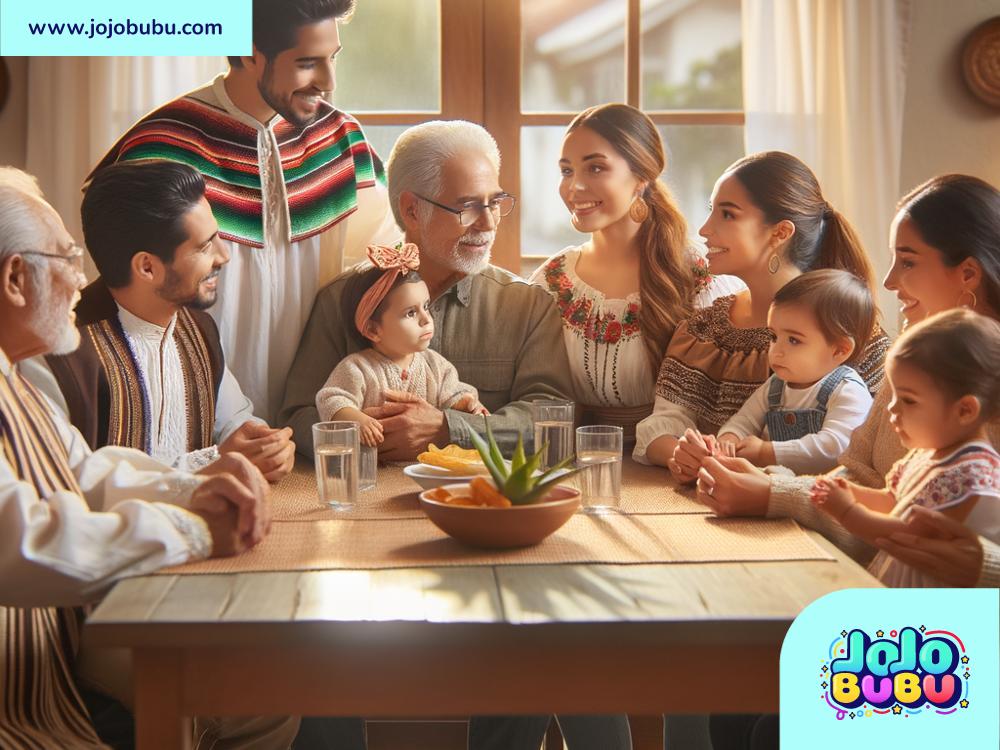Celebrating Family Heritage: Understanding Our Roots
Family heritage is an important part of who we are. It’s like a story that connects us to our ancestors and helps us understand where we come from. Talking about family heritage can be a great way to share stories, preserve traditions, and learn more about the people and cultures that shaped us. In this blog post, we’ll explore why family heritage matters, how to start conversations about it, and ways to celebrate your family’s unique history — all explained in simple English.
Why Does Family Heritage Matter?
Family heritage is more than just history. It’s the link that ties generations together. Knowing about your family’s past gives you a sense of identity and belonging. It can help you understand customs, beliefs, and even everyday habits that have been passed down. For example, have you ever wondered why your family cooks a certain dish during holidays? Or why they celebrate events a certain way? These traditions are often deeply rooted in your heritage.
Learning about heritage is also a way to honor the struggles and accomplishments of those who came before us. Many families have stories of migration, hard work, or overcoming challenges, and these stories shape the values we live by today. When we talk about our family’s history, we’re keeping those memories alive.
How to Start Talking About Family Heritage
Talking about family heritage doesn’t need to be complicated. You don’t have to be a historian to learn and share stories. Here are simple tips to get started:
-
Ask Questions: Start small by asking questions to your parents, grandparents, or older relatives. Some examples include:
- Where did our family originally come from?
- What stories have been passed down in our family?
- Do we have traditions that came from a special place?
These kinds of questions can open the door to interesting conversations.
-
Share Memories: Encourage family members to talk about their childhood or favorite memories growing up. Maybe a parent remembers how their grandparents used to celebrate a holiday, or maybe they tell stories about special family gatherings. Personal memories are often tied to cultural traditions.
-
Explore Old Photos and Documents: Look for old family photos, letters, or documents. These can bring history to life in a very visual way. For example, a photo from a wedding decades ago can reveal traditional clothing or explain customs people followed at the time.
-
Learn About Your Last Name or Family Name: Some surnames have interesting origins or meanings. Researching your name might help uncover a connection to a particular place or profession. For example, a last name like "Smith" often connected to blacksmiths in the past.
Fun Ways to Celebrate Family Heritage
Discussing family heritage is just the beginning. There are many ways to celebrate and share your family’s unique history. Here are a few simple ideas:
-
Cook Traditional Food Together: Food is an amazing way to connect with your heritage. Many cultures pass down recipes from one generation to the next, such as special breads, soups, or desserts. Gathering to cook and eat these dishes is not only fun but also meaningful.
-
Create a Family Tree: Making a family tree is a visual way to show your family connections over generations. You can include names, dates of birth, and even add photos if you have them. Many people feel proud seeing how their family has grown through time.
-
Celebrate Festivals or Holidays from Your Heritage: If your family comes from a place that celebrates unique festivals, get involved! Whether it’s lighting candles during Diwali, learning a dance for Lunar New Year, or honoring ancestors during Día de Muertos, traditions bring families closer.
-
Learn Stories from Your Culture or Community: Many cultures have folktales or legends that were passed down. Ask older family members if they know any tales about your heritage, or look for books or online materials that teach these stories.
-
Wear Traditional Clothing: In some families, wearing traditional clothing can be a way to connect to your roots. For example, people from Scotland might wear kilts, while Indian families might wear saris or kurtas for special occasions.
Family Heritage for the Modern World
In today’s world, families are very diverse, and many people come from mixed heritages. This makes our stories even more colorful and valuable. Whether your family is from one culture or blends several, your heritage deserves to be celebrated. It’s an opportunity to embrace the richness of different traditions.
Even if you don’t know much about your family’s past, you can start now. Every family has a history, whether it’s tied to a specific country, religion, or group, or simply rooted in love and perseverance. Discovering and sharing these stories helps us better understand ourselves and create stronger bonds with those around us.
Passing Heritage Onto the Next Generation
Talking about family history isn’t just about looking back — it’s about moving forward. When we share stories, traditions, and values with younger generations, we’re giving them a gift. We’re helping them feel connected and giving them tools to carry a sense of pride in their heritage.
So, the next time you’re together with family, take a moment to start talking about your heritage. Share stories, ask questions, cook a favorite meal, or learn something new. By celebrating where we come from, we create stronger connections and keep our family’s legacy alive for years to come.
Family is more than just people; it’s the stories, traditions, and love that bring us together. Celebrate your heritage — it’s a treasure worth preserving!

